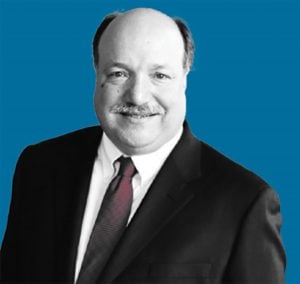 Today's investment education should be less Modern Portfolio Theory and more behavioral economics. (Photo: Shutterstock)
Today's investment education should be less Modern Portfolio Theory and more behavioral economics. (Photo: Shutterstock)
Which question do you think the typical retirement plan participant could answer the quickest: “What is the long-term impact of your asset allocation on the growth of your retirement plan?” or “What is the immediate impact to your weekly spending if you contribute $10 more a paycheck into your 401(k)?”
Therein lies the reason we no longer see hours of employee education dedicated to style boxes, growth versus value definitions, and other remnants of Modern Portfolio Theory. The truth of the matter is people just don't need to know that stuff.
 Christopher Carosa, CTFA, is chief contributing editor for FiduciaryNews.com, a leading provider of essential news and information, blunt commentary and practical examples for ERISA/401(k) fiduciaries, individual trustees and professional fiduciaries.
Christopher Carosa, CTFA, is chief contributing editor for FiduciaryNews.com, a leading provider of essential news and information, blunt commentary and practical examples for ERISA/401(k) fiduciaries, individual trustees and professional fiduciaries.Gone are the days when everyone watched CNBC in anticipation of sneaking off to some hidden cubicle to place a few day trades. Remember those days? Everyone amped to discover the latest sure-thing “home run” stock. In fact, today, according to a December 2018 Business Wire release, “CNBC recorded its second-lowest rated year in the past 25 years.” Face it, believers, high finance simply doesn't generate the highs it once did.
And that's a good thing. People have much greater dreams than to understand and contemplate the intricacies of the capital markets. To the extent anything regarding their company's retirement plan impacts their daily lives, their interest will be greater (and their eyes less tired) if the subject turns to topics which they can actually control in an immediate way.
Yes, they control which investments they select, but the results of that “control” aren't instantly felt. They have a similar control over their savings rate, and the impact of that decision is something they can see right away.
Does this sound counterintuitive? You'd think that quick impact would frighten them away. It doesn't.
Feeling the results of your decision, rather than scaring you away, actually leads to greater satisfaction in that decision. It's a form of a “self-justification” response. Contrast this with your thoughts when you don't know the outcome of a decision for a long time. You grow anxious. You begin to question the validity of your choice. You draw closer to reversing what may have originally been a sound decision made dispassionately.
As your emotions peak, they tempt you to select a less appropriate path. No one wants to go down that path; hence, the popularity of target date funds and other QDIAs. Why make a decision when you don't have to?
Allow me to amend that last statement: Why make an investment decision when you don't have to?
This doesn't mean we should forsake investment education for employees. We don't need to reject reiterations of fancy formulas attempting to explain the machinations of the Capital Asset Pricing Model and those ubiquitous asset allocation pie charts. Rather, we must focus on the traps investors allow themselves to fall prey to.
This requires investment education be less Modern Portfolio Theory and more behavioral economics. It's not about offense and finding home runs. It's about defense and hitting singles.
It's far easier to stay ahead when you don't have to worry about catching up after falling behind.
Read more:
© 2025 ALM Global, LLC, All Rights Reserved. Request academic re-use from www.copyright.com. All other uses, submit a request to [email protected]. For more information visit Asset & Logo Licensing.







